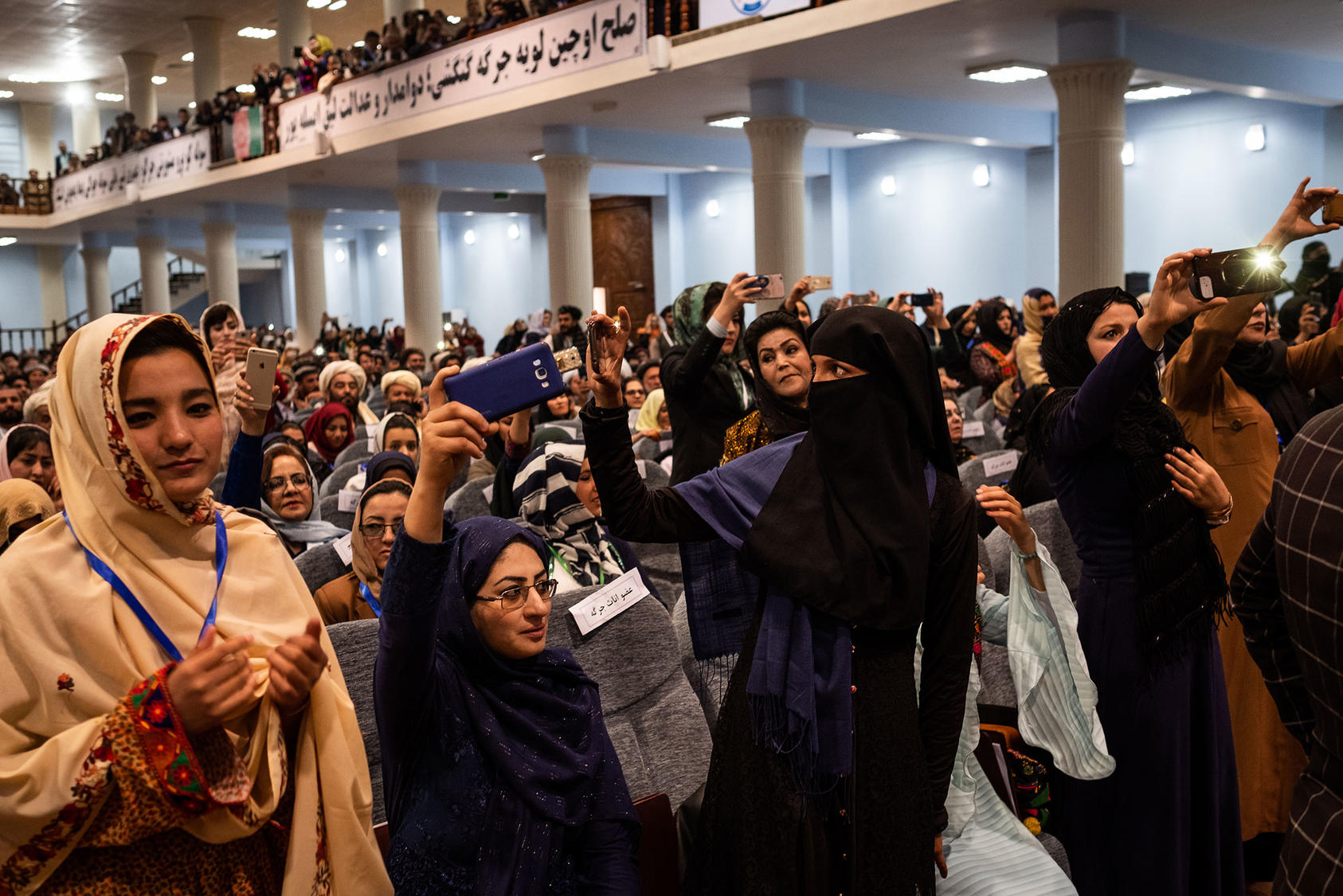Belquis Ahmadi
 Afghans are hopeful that a peace deal between the Taliban and the U.S. will bring them a step closer to the end of the country’s four decades of conflict. This protracted state of war has resulted in the loss of countless lives; mass displacement; and the destruction of infrastructure and the education and justice systems. Afghans will feel the consequences for generations to come. Given the price Afghans have paid and continue to pay, one might assume that they would eagerly welcome and accept any deal that brings an end to the ongoing war. But is that really the case and is it really that simple?
Afghans are hopeful that a peace deal between the Taliban and the U.S. will bring them a step closer to the end of the country’s four decades of conflict. This protracted state of war has resulted in the loss of countless lives; mass displacement; and the destruction of infrastructure and the education and justice systems. Afghans will feel the consequences for generations to come. Given the price Afghans have paid and continue to pay, one might assume that they would eagerly welcome and accept any deal that brings an end to the ongoing war. But is that really the case and is it really that simple?
Female delegates during the opening ceremony of the Grand Assembly, April 29, 2019. An expected agreement between the U.S. and the Taliban to smooth future negotiations raises concerns that women may lose some freedoms.
For many Afghans, peace is not simply the cessation of violence. They want equal rights for all citizens codified in the constitution and they want a governance structure with institutions to protect those rights. While the broad contours of the U.S.-Taliban deal—a phased withdrawal of U.S. forces and a commitment by the Taliban to reject al-Qaida and other militant groups operating in their territory—have been widely discussed for months, the particularities and conditionalities of the agreement remain unknown.
These conditionalities must tie troop withdrawal to efforts to address the concerns of women, youth, minorities, internally displaced communities, and returnees. And they must also stipulate provisions to ensure equal participation of all without discrimination based on ethnicity, gender, language, religion, political, economic, or social affiliations.
Women, in particular, have paid a high price over the years and will likely lose the most if a peace deal does not include provisions agreed to by all parties to treat women as equal citizens who will participate in and contribute to the rebuilding of their country.
Have the Taliban Changed?
Since direct talks between the U.S., led by Special Representative for Afghanistan Reconciliation Zalmay Khalilzad, and the Taliban started in late 2018, a number of experts and political analysts—many of whom are not Afghans—have said they believe the Taliban have changed or reformed. They say Taliban leaders in Doha have assured them that they recognize that today’s Afghanistan is not the same as in the late 1990s when they ruled the country. However, in the eyes and experience of millions of Afghans, the Taliban’s ideology remains very much unchanged.
Is there anything that can be done to bridge the ideological gap between those who want an inclusive Afghanistan and an extremist, ultra-conservative group that has shown nothing to demonstrate they have changed? Is there anything that indicates that the Taliban will not resort to the inhuman treatment of fellow Afghans who disagree with them? We should know the answer to these questions soon.
After 18 years of fighting the Taliban, the U.S. now appears willing to meet the group’s demand for troop withdrawal. Yet, even as the U.S. negotiates with the Taliban, the group continues to engage in terrorism and kill civilians indiscriminately. The question is whether the Taliban—at both the leadership and operational levels—have the capacity, competency, and willingness to put the public good before the group’s interests.
Even if the U.S.-Taliban deal and an eventual peace agreement brokered by intra-Afghan talks results in the Taliban joining the country’s political system, terrorism will remain a challenge for the country. Just over the weekend, a suicide bomb attack—claimed by ISIS’ Afghanistan affiliate—killed 63 at a wedding ceremony in Kabul.
Women, in particular, have paid a high price over the years and will likely lose the most if a peace deal does not include provisions agreed to by all parties to treat women as equal citizens who will participate in and contribute to the rebuilding of their country.
Countering terrorism requires more than a military response; it requires integrated political, social, and economic strategies. Ultimately, Afghanistan can only tackle its terrorism challenge when it has achieved political stability, social equity and economic growth, all of which are interconnected. There is concern that withdrawal could lead to a sudden stop of humanitarian and development aid, which would be catastrophic on many levels. As the U.S. and international coalition forces drawdown, the international community must remain engaged to help Afghanistan build a more peaceful, inclusive society, which is the only way to reduce the high levels of violence the country has experienced for decades.
Is the international community, particularly the U.S., willing to stand by Afghans as they turn the page to a new and complex chapter? This chapter will test the U.S. and international community’s commitment to the values and principles enshrined in the human rights charter.
Many Afghans are worried that after the signing of a peace deal between the U.S. and the Taliban, the U.S. will abandon Afghanistan, leading to chaos and civil war much like after the withdrawal of Soviet troops some 30 years ago. An abandoned Afghanistan would be exploited by violent extremist groups around the world to claim victory as they work to recruit new fighters. A humanitarian crisis in a potential failed state with weak institutions and lack of rule of law could bring Afghanistan right back to where it was in the days leading up to 9/11. Afghans have given too much to go back.
No comments:
Post a Comment